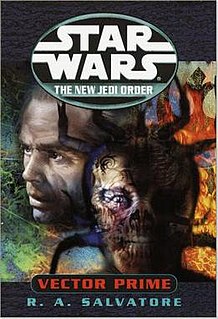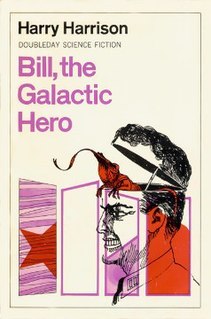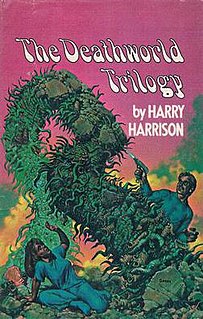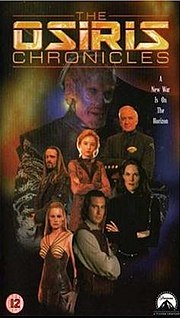Plot summary
A nondescript spacer with little education named Cerne Obrien finds a cache of extremely valuable "retron crystals", but crashes on an idyllic planet before he can sell them. The planet has a single continent, inhabited by humans with a Polynesian culture. The natives live contented lives, hunting a horrific sea-creature called the koluf, which constitutes almost their entire diet. Obrien uses his surviving technology to rid the area of several pests, and eventually marries. The natives come to call him the "Langri", a title of deep respect.
Obrien lives a peaceful life, watching his descendants grow up, but when he realizes he is getting old, he begins worrying about the future. Unscrupulous developers would inevitably attempt to turn the planet into a resort and marginalize the natives. Obrien could handle them if they arrived soon, but he cannot live forever.
He has bright young people sent to him. He begins to teach them "the Plan". It is difficult to teach the non-technological natives all they need to know, as they have little concept of modern galactic society, but he manages it. His best pupil is a young man named Fornri.
Even as Obrien lies dying, a developer called Wembling arrives to illegally prospect for minerals. The people, led by Fornri, put the Plan into effect. They first capture Wembling and his men, and the crews of the four scout ships sent to find Wembling. The Navy eventually arrives, official negotiations ensue, and a treaty is signed recognizing the planet under the name Langri. The people of Langri fine the Federation for illegal landings. In due course, this (and Obrien's retron crystals) allows the people of Langri to hire a law firm as specified in the Plan.
Eventually Wembling realizes the planet's potential. He sees to it that the record of Langri's Galactic treaty is lost and procures a charter to develop a tourist resort. The construction drives away most of the koluf, and the people begin to starve; their adaptation to the environment has eliminated their ability to digest "normal" food. The starving people of Langri fail to get a court to stop Wembling; he has a seemingly valid charter.
Meantime, Wembling's niece Talitha and his hired (and fired) anthropologist Hort form a relationship. They discover Obrien's wrecked craft and read his log, including his notes on the Plan; they are amazed that one man could have created such a complete and detailed scheme, including Obrien's masterstroke. Sympathizing with the natives and fearing to interfere with the Plan, they keep their newfound knowledge to themselves.
In accordance with the Plan, the people of Langri have been secretly learning to read. After having achieved the required high literacy rate, they successfully petition for membership in the Galactic Federation. The Plan then enters its endgame: the duly formed planetary government imposes a tax rate of 1000%. Since the natives have few personal assets, they can easily afford to pay, but such an exorbitant rate would bankrupt Wembling. The developer mounts a legal challenge, but a government can impose any tax it wishes, as long as it is applied equally to all. Obrien knew of this obscure precedent and made it the cornerstone of the Plan.
The government plans to build schools, parks, and hospitals to benefit the people. In the short story, it even hires Wembling, admiring his ruthless energy, if not his morals. (In the novel, he departs in disgust after trying to offer the new government a deal on a hotel.)

The Foundation series is a science fiction book series written by American author Isaac Asimov. First published as a series of short stories in 1942–50, and subsequently in three collections in 1951–53, for thirty years the series was a trilogy: Foundation; Foundation and Empire; and Second Foundation. It won the one-time Hugo Award for "Best All-Time Series" in 1966. Asimov began adding new volumes in 1981, with two sequels: Foundation's Edge and Foundation and Earth, and two prequels: Prelude to Foundation and Forward the Foundation. The additions made reference to events in Asimov's Robot and Empire series, indicating that they also were set in the same fictional universe.
Hari Seldon is a fictional character in Isaac Asimov's Foundation series. In his capacity as mathematics professor at Streeling University on the planet Trantor, Seldon develops psychohistory, an algorithmic science that allows him to predict the future in probabilistic terms. On the basis of his psychohistory he is able to predict the eventual fall of the Galactic Empire and to develop a means to shorten the millennia of chaos to follow. The significance of his discoveries lies behind his nickname "Raven" Seldon.

Foundation is a science fiction novel by American writer Isaac Asimov. It is the first published in his Foundation Trilogy. Foundation is a cycle of five interrelated short stories, first published as a single book by Gnome Press in 1951. Collectively they tell the early story of the Foundation, an institute founded by psychohistorian Hari Seldon to preserve the best of galactic civilization after the collapse of the Galactic Empire.

Burmese Days is the first novel by English writer George Orwell, published in 1934. Set in British Burma during the waning days of empire, when Burma was ruled from Delhi as part of British India, the novel serves as "a portrait of the dark side of the British Raj." At the centre of the novel is John Flory, "the lone and lacking individual trapped within a bigger system that is undermining the better side of human nature." The novel describes "both indigenous corruption and imperial bigotry" in a society where, "after all, natives were natives—interesting, no doubt, but finally...an inferior people".

Star Wars: The New Jedi Order is a series of 19 science fiction novels, published from 1999 to 2003, set in the Star Wars Expanded Universe. The series revolves around the Yuuzhan Vong invasion of the galaxy 21–25 years after the events depicted in Return of the Jedi. The New Jedi Order was the restored and reformed Jedi organization, following the Great Jedi Purge and subsequent fall of the Galactic Empire. The Jedi Knights, reduced in number to only a handful, were slowly restored, primarily under the leadership of Luke Skywalker. Additional related stories were published, some as e-book novellas and others as comic books ; these increase the total number of published NJO-related stories to 26.

Lloyd Biggle Jr., was an American musician, author, and internationally known oral historian.

Bill, the Galactic Hero is a satirical science fiction novel by American writer Harry Harrison, first published in 1965. A novella length version appeared in the magazine Galaxy Science Fiction in 1964 under the name "The Starsloggers".

Against the Fall of Night is a science fiction novel by British writer Arthur C. Clarke. Originally appearing as a novella in the November 1948 issue of the magazine Startling Stories, it was revised and expanded in 1951 and published in book form in 1953 by Gnome Press. It was later expanded and revised again and published in 1956 as The City and the Stars. A later edition includes another of Clarke's early works and is titled The Lion of Comarre and Against the Fall of Night. In 1990, with Clarke's approval, Gregory Benford wrote a sequel titled Beyond the Fall of Night, which continues the story arc of the 1953 novel. It is generally printed with the original novel as a single volume.

Protector is a 1973 science fiction novel by American writer Larry Niven, set in his Known Space universe. It was nominated for the Hugo in 1974, and placed fourth in the annual Locus poll for that year.

Deathworld is the name of a series of science fiction novels by American writer Harry Harrison, including the books Deathworld, Deathworld 2 and Deathworld 3, plus the short story "The Mothballed Spaceship". The central hero is a gambler who becomes involved with colonists of an extremely hostile planet.

The Warlord: Battle for the Galaxy is a science fiction film which aired on January 27, 1998 on television. The film is written by screenwriter Caleb Carr, who wrote the novel The Alienist, and directed by Joe Dante. It was intended to be the pilot for a series called The Osiris Chronicles that never materialized. Similar concepts would later be used in Andromeda.
The planetary systems of stars other than the Sun and the Solar System are a staple element in many works of the science fiction genre.
"The Hazing" is a science fiction short story by Isaac Asimov. It was first published in the October 1942 issue of Thrilling Wonder Stories and reprinted in the 1972 collection The Early Asimov. Discussing the story in The Early Asimov, the author noted that it is set in the same fictional universe as his earlier stories "Homo Sol" and "The Imaginary", but featured different characters. "The Hazing" was the thirtieth story written by Asimov, and the twenty-eighth to be published. Due to the peculiar workings of the science fiction magazine publishing industry, the story appeared a month before "The Imaginary".

Ascending is a science fiction novel by the Canadian writer James Alan Gardner, published in 2001 by HarperCollins Publishers under its various imprints. It is the fifth novel in Gardner's "League of Peoples" series. It is a direct sequel to the first novel in the series, Expendable, in that it picks up the dual story of Festina Ramos, Explorer turned admiral, and the transparent glass woman Oar, where the earlier novel left off.

The Swords of Zinjaban is a science fiction novel written by L. Sprague de Camp and Catherine Crook de Camp, the eleventh book of the former's Viagens Interplanetarias series and the eighth of its subseries of stories set on the fictional planet Krishna. Chronologically it is the eighth Krishna novel as well. It was first published in paperback by Baen Books in February 1991. An E-book edition was published by Gollancz's SF Gateway imprint on September 29, 2011 as part of a general release of de Camp's works in electronic form.

"The Gold Bug" is a science fiction story by American writer Orson Scott Card, set in his Ender's Game universe. It tells the story of how Sel Menach steps aside as leader of a colony world to let Ender Wiggin take over as governor. It appears in Card's Webzine InterGalactic Medicine Show, and was incorporated into Card's novel Ender in Exile.
The Foundation universe is the future history of humanity's colonisation of the galaxy, spanning nearly 25,000 years, created through the gradual fusion of the Robot, Galactic Empire, Foundation book series written by American author Isaac Asimov.

Gargantia on the Verdurous Planet is a Japanese anime television series produced by Production I.G and directed by Kazuya Murata, and aired between April and June 2013. A manga adaptation began serialization in Kadokawa Shoten's Newtype Ace magazine in January 2013.













